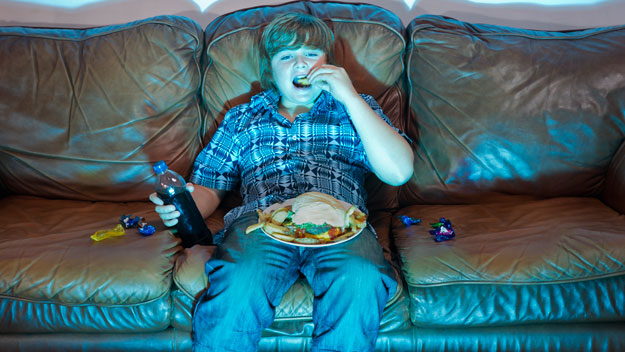Children who spend a lot of time in front of the television are more likely to consume unhealthy soft drinks leading to obesity and health problems like diabetes.
A study by the University of Gothenburg found that for every hour children sit staring at the screen, they are 50 per cent more likely to consume sweetened drinks, and parents who don’t restrict their children’s TV time are twice as likely to have children who consume sugary soft drink each week.
Related: Soft drinks are ‘evil’ and should be avoided
The study surveyed more than 1700 parents of two- to four-year-old children about their children’s viewing habits and sweetened drink consumption.
Researchers found a “very clear link” between kids’ viewing habits and soft drink consumption, but were uncertain whether the increased consumption among children who watched more TV came down to exposure to advertisements, or that children were drinking while they watched.
“The children who watched more TV were more likely to drink these beverages,” said researcher Stina Olafsdottir.
“In fact, each additional hour in front of the TV increased the likelihood of regular consumption by 50 per cent.
“A similar link was found for total screen time.”
One in seven parents were found to reduce their children’s exposure to TV ads, and children of the same parents were found to be less likely to drink sweetened beverages regularly.
Related: Fizzy drinks bad for kids’ hearts
The evidence of sugary drinks’ impact on weight gain and diabetes in children is mounting worldwide. A 2012 study found that as little as two cans of soft drink per week can wreak havoc on our health, causing increased risk of heart disease, liver failure, pancreatic cancer and hypertension.
More recently in Tasmania, where one in three children are considered obese or overweight, calls have been made for ban on soft drinks in schools.




